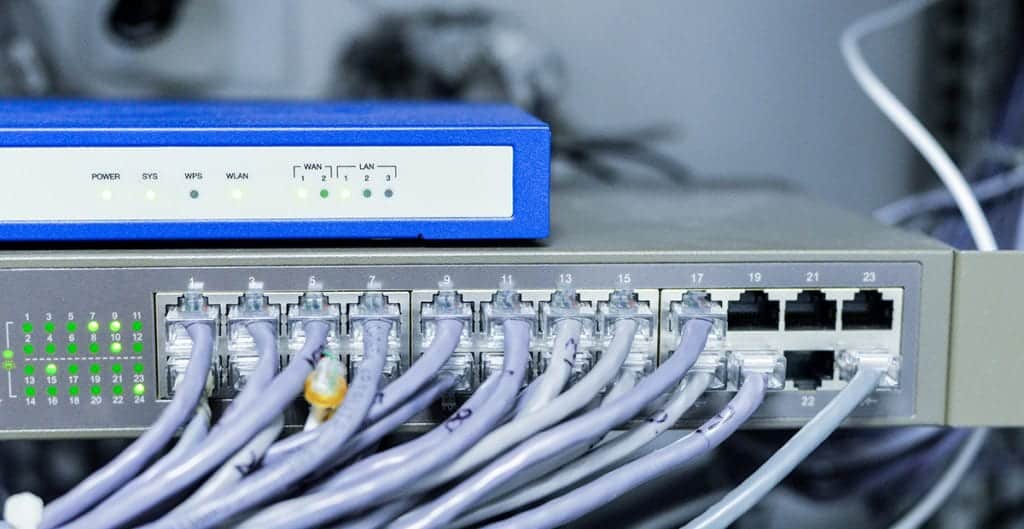Businesses are booming, and so, the requirements of firms have also become more dynamic. With the surge of the sales of one-stop shopping websites, one can very well gauge the changing needs of society. We wish for our world to reduce to a nuclear network. When time is money, we seek tailor-made solutions to our problems, without having to consult multiple providers. This need paved the way for the advent of IT outsourcing.IT outsourcing is a practice in the corporate sector, where, an external service provider delivers the IT functions required by a company. IT outsourcing providers can be responsible for managing the entire digital infrastructure of a company, as a fully managed service. They may also provide additional support for an internal IT team. This is termed as co-sourced IT support, and is preferred by larger companies which have in house IT teams.
IT outsourcing can enable the company to streamline their activities and focus on their core competence, rather than, investing time in supporting activities. This can prove beneficial to the organization.
-
- Access to experienced professionals- Outsourced IT teams serve varied clientele, and so, they have experience in dealing with different IT system requirements. They are better able to serve company-specific needs because of their seasoned knowledge. Their keen eye for identifying and recognizing the problems immediately becomes more valuable in times of mishaps and disasters. The network may be alive and kicking even before the company realizes. Better security helps avert most threats, and so reduces the down-time, since, it is a proactive strategy and not a reactive strategy. This is a huge cost-saving tool for companies.
-
- More cost-saving- The cost of training each individual employee for an in house IT team far outweighs that of outsourcing the function to experienced outsourcing companies. Training is a reasonably lengthy process whose outcome can’t be ascertained. Moreover, engaging an experienced firm guarantees lesser risk, as their experience makes them trustworthy. Choosing to outsource IT services opens a treasure trove of options that a company can choose from. It proves a cost-effective method, making it a widely adopted method. Factoring in outsourcing in the budget makes it flexible, as it allows for more investment in system upgrades and improved security systems.
-
- All-round monitoring boosts competition- IT support teams often lack the resources that IT outsourcing firms possess since it requires a sizeable investment. However, with the combined genius of their resources and the company’s resources, there is no looking back. They can efficiently monitor the activities, and douse the potential threats before they get the chance to snowball into threatening issues. Such companies provide services for SMEs and larger firms alike, so smaller firms can get advice and assistance as the larger ones. With continued IT services, companies may scale a notch higher than their competitors.
-
- Increased efficiency- Employees needn’t spend as much trying to resolve small technical issues with the services of a dedicated firm at hand. Unwavering attention to the core competence can enable diversification and assistance for the firm in the long run.
Working with IT outsourcing teams also ensures an updated and evolved service to suit the company’s needs. It may be a wise decision, after all, to make the switch.
TECH ESSENTIALS
Irrespective of the size of the business, a large volume of business operations have been shifted to more convenient and efficient online methods. A technologically adept business can experience the sweet taste of success before its competitors. Business technology essentials cover a large arena of requirements which can seem very confounding and daunting at first, but, with some assistance, even this peak can be scaled.
-
- Cloud computing– Cloud computing is where the applications and data are stored on computers that one doesn’t own. The computing power is leased as needed. It is impossible to locate a specific item of hardware that contains ‘the data’ – it might be anywhere in the networks. For example, business emails might be hosted ‘in the cloud’ with Gmail or Microsoft Outlook, or data files might be on Microsoft OneDrive, Dropbox, Apple’s iCloud, or Google Drive. Cloud computing is ubiquitous and cost-effective. Cloud computing provides the scope for small businesses to innovate just as large ones do, eliminating disparity. It also provides the small business with the window to expand when the need arises. Cloud computing eliminates the cost of maintaining an IT staff to look after new servers and purchasing new hardware.
-
- Mobile devices- The use of mobile, handy devices has increased multiple folds in the recent past. Consumers have welcomed these devices enthusiastically. This shift in mentality led to the emergence of the concept of ‘Bring Your Own Device’ (BYOD) – where the employees use their personal devices to store business data. Even this has raised several concerns. BYOD means that any small and easily-lost device can easily contain vast amounts of relevant business information which can prove fatal to the business. Further, it acts as a host for viruses and Trojan horses. This is why most companies dealing with sensitive information don’t prefer the use of mobile devices.
-
- Cybersecurity– The trends in cloud computing, mobile devices, and social media necessitate the fourth trend, the need for more vigilance regarding cybersecurity. For ease of understanding, cybersecurity can be viewed as ensuring that business data is safe from attack via the internet. A survey in 2016 found that the average amount of damage caused by a ransomware attack might be up to $99,000 for small to medium businesses. Cyber attacks can potentially destroy businesses. Small businesses often do not manage data securely, and they become compromised. Small firms such as accountants and financial planners are suitable targets for identity theft as they often have minimal security but have a great deal of precious information. This information can be misused to facilitate identity theft, which is a serious offence.
In small firms that aren’t equipped to deal with IT threats, it is considered wiser to seek assistance from IT solution firms. For this, firms must be clear about what they expect from the IT firm. Their requirements may be served best by a single provider, or if seeking tailor-made solutions, multiple providers.
Social media as an advertising platform is very versatile and gives quick results. It is so ubiquitous that words like Instagramming have been born! It enables firms to directly connect with their consumers, and it helps in the spread of news like wildfire.
However, companies have to be equally sensitive to their consumers when adopting social media. The evolving needs and suggestions of consumers must drive companies to serve them. Consider the infamous controversy of the Dolce and Gabbana shoes in 2017, which promoted that one could be gorgeous only if they were thin. This drew a lot of flak from dismayed consumers.
Social media campaigns can turn very sour very fast, as public comments reflect the values of the brand. Just beware of the black hole!




